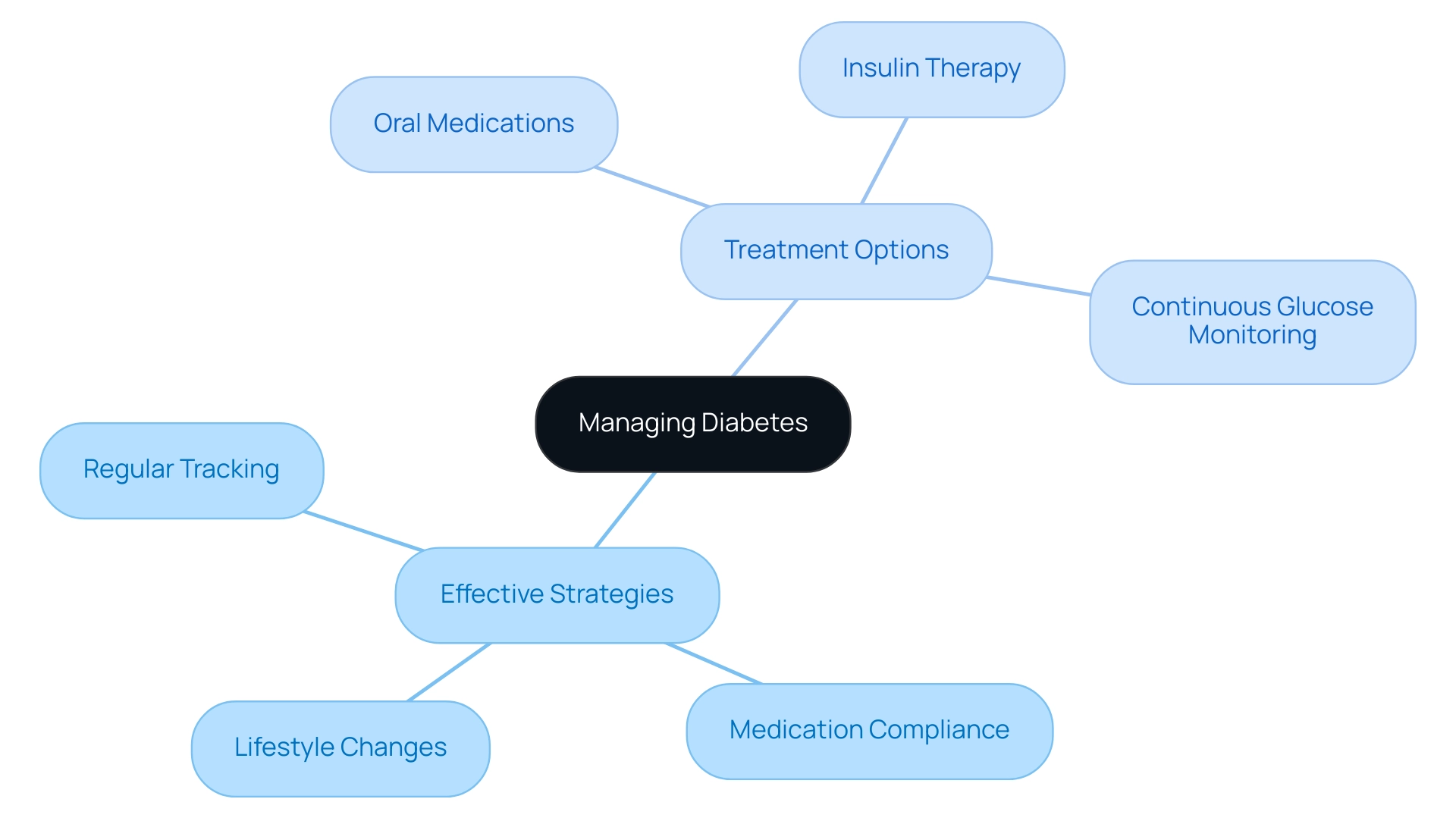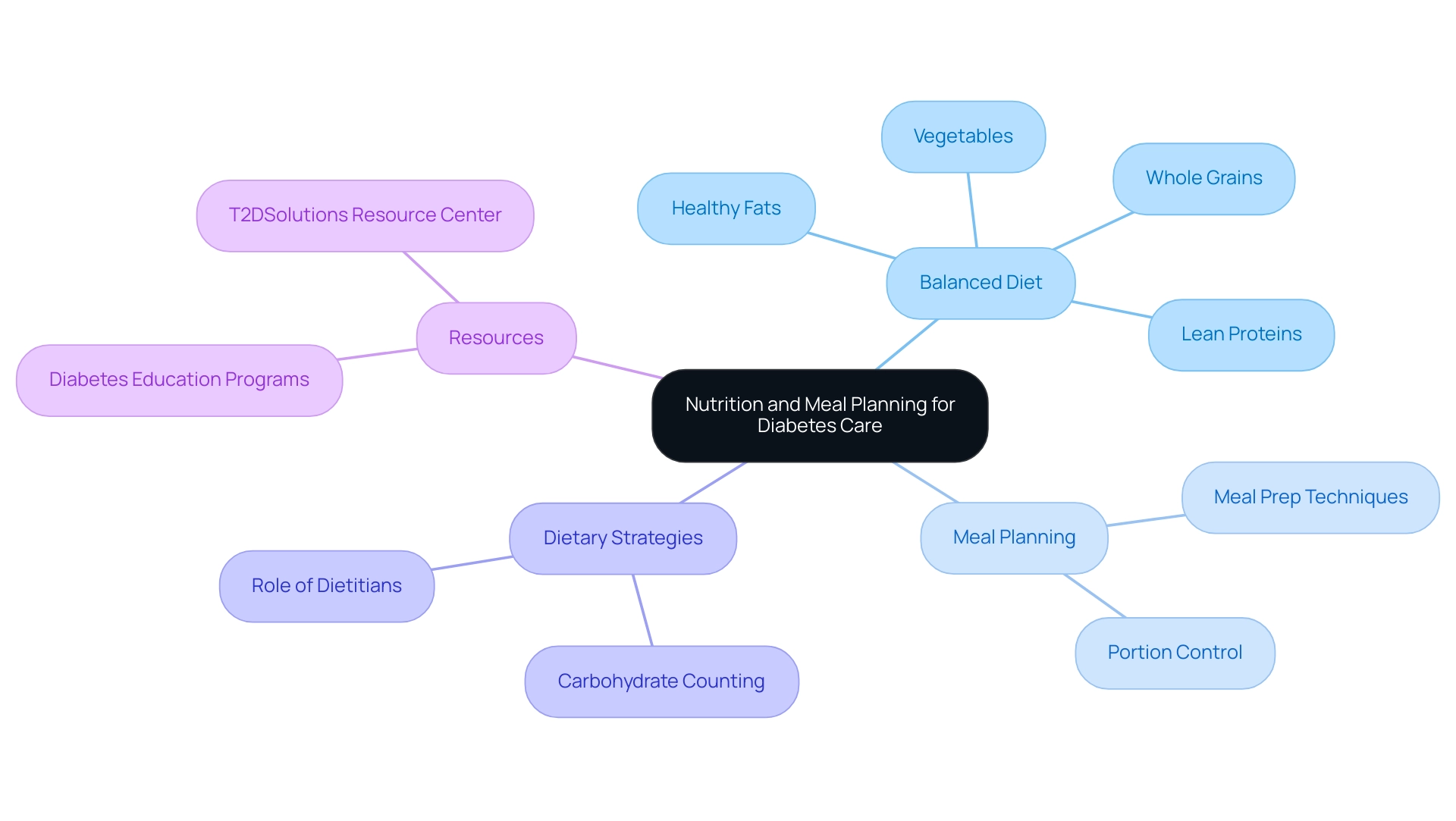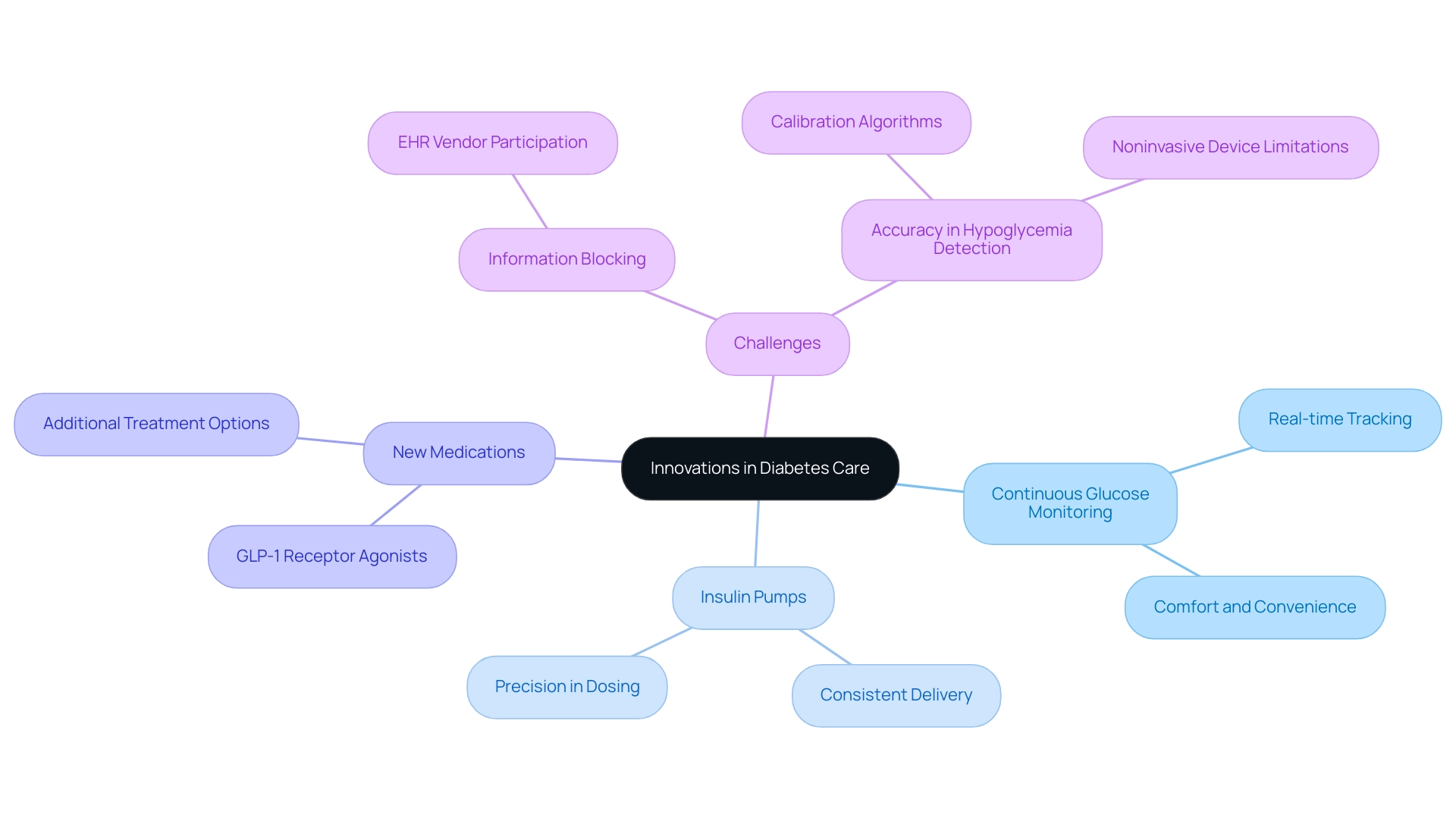Overview:
The article provides an in-depth overview of diabetes, highlighting its definitions, types, prevalence, management strategies, nutritional needs, psychological impacts, and recent innovations in care. It emphasizes the critical need for education and community support, particularly through resources like T2D Solutions, to empower individuals in effectively managing their diabetes and addressing both physical and mental health challenges associated with the condition.
Introduction
Diabetes is a chronic condition that affects millions of individuals worldwide, characterized by elevated blood sugar levels due to the body's inability to produce or utilize insulin effectively. With three main types—Type 1, Type 2, and gestational diabetes—each presents unique challenges and requires tailored management strategies.
The prevalence of Type 2 diabetes is particularly alarming, with significant numbers of affected individuals and a growing population of prediabetics. This article delves into the complexities of diabetes, exploring:
- Effective management techniques
- The importance of nutrition
- The psychological impact on patients
- The latest innovations in care
By understanding these facets, individuals can better navigate their diabetes journey and improve their overall quality of life.
Understanding Diabetes: Definitions, Types, and Prevalence
Diabetes is a chronic condition marked by elevated blood sugar levels resulting from the body's inability to produce or effectively utilize insulin. There are three main categories of this condition:
1. An autoimmune disorder where the body does not produce insulin
2. A condition frequently linked to lifestyle elements and marked by insulin resistance
3. Gestational diabetes, which occurs during pregnancy
As reported by the Centers for Disease Control and Prevention, approximately 90% to 95% of all cases of this condition in the United States are classified as Type 2.
In 2021, over 34 million Americans with diabetes were living with the condition, while an alarming 88 million adults were identified as prediabetic. Among these, 5.0 million Hispanic adults had diagnosed blood sugar issues, highlighting the demographic impact of the condition. Furthermore, the condition was noted as a cause of death in a total of 399,401 death certificates in 2021, underscoring the severity of this issue.
This stark prevalence emphasizes the critical need for effective education and management strategies aimed at both prevention and control of the disease. T D Solutions is committed to empowering individuals with Type 2 and Type 3 forms of the condition through extensive resources, such as educational materials and community forums, along with innovative insights. By offering a supportive network, T2D Solutions functions as an essential center for newly diagnosed patients, providing guidance and aid in managing their condition and tackling the challenges presented by the illness.

Managing Diabetes: Effective Strategies and Treatment Options
Efficient oversight of 2 conditions requires a multifaceted strategy that includes:
- Regular tracking of blood glucose levels
- Strict compliance with prescribed medications
- Considerable lifestyle changes
T2DSolutions is here to assist you on this journey, providing a thorough resource hub focused on Type 2 and Type 3 blood sugar conditions education and community support. Our platform will offer access to educational resources, community discussions, and personalized tools, all aimed at enabling individuals in handling their condition effectively.
Among the treatment options available, individuals may utilize:
- Oral medications
- Insulin therapy
- Continuous glucose monitoring systems
Each tailored to meet the unique needs of the patient. As stated by the American Diabetes Association, the financial impacts of diabetes on Americans with diabetes in the U.S. were significant in 2017, emphasizing the pressing requirement for efficient handling approaches. Current best practices highlight the significance of working with healthcare providers to develop personalized care plans that consider individual health conditions and lifestyle preferences.
Dr. Kevin D. Huffman, a board-certified bariatric doctor, promotes an all-encompassing treatment plan, stating, 'A personalized approach is vital for effective control of diabetes-related issues.' Furthermore, Healthy People 2030 outlines ambitious goals aimed at enhancing health outcomes related to blood sugar management, such as increasing the proportion of adults with this condition who achieve recommended glycemic control. As of 2024, nearly 10.5% of the adult population, which includes Americans with diabetes, is estimated to be impacted by this condition, underscoring the necessity for effective treatment strategies that improve adherence rates to medications and ultimately enhance quality of life.
Notably, recent case studies recommend early combination therapy and the use of SGLT2 inhibitors to minimize hypoglycemia risk while achieving glycemic and weight goals.

Nutrition and Meal Planning: Key Components of Diabetes Care
For Americans with diabetes, adhering to a balanced diet is crucial for managing blood sugar issues. This involves incorporating a variety of vegetables, whole grains, lean proteins, and healthy fats while minimizing the intake of processed foods and added sugars. As T2DSolutions introduces a new resource center for Type 2 and Type 3 blood sugar education and community assistance, which is approaching, it will offer extensive advice on dietary oversight.
You can subscribe now to stay updated on new content as it becomes available. The Mayo Clinic Diet utilizes a two-phase method centered around a food pyramid, which can act as an organized nutritional framework for blood sugar control. Carbohydrate counting emerges as an effective approach to regulate blood glucose levels, with studies showing that it can significantly enhance meal management and overall health.
To further support balanced nutrition, meal planning is highly recommended. Preparing meals in advance and implementing portion control techniques can help maintain healthy eating habits throughout the day. Engaging with a registered dietitian can provide tailored dietary guidance, ensuring that nutritional needs are met effectively.
As mentioned by Charles 'Chuck' Henderson, the chief executive officer of the ADA,
Enhancing the lives of individuals affected by the condition is a key part of the ADA’s mission.
This highlights the significance of thorough nutritional plans for Americans with diabetes in managing blood sugar conditions. Additionally, a case study examining the role of physicians in providing nutritional advice highlights the significance of interdisciplinary collaboration, emphasizing the need for referrals to registered dietitian-nutritionists for effective self-management education regarding blood sugar control.
T2DSolutions will be an essential resource for Americans with diabetes who are newly diagnosed and seeking to understand and implement these dietary strategies.

The Psychological Impact of Diabetes: Understanding Mental Health Connections
Living with type 2 condition often presents a range of psychological challenges, including heightened anxiety about managing blood sugar levels, fear of potential complications, and feelings of isolation. Notably, a recent analysis indicated that patients with HbA1c levels exceeding 8.5% are significantly at risk for developing anxiety and depression, highlighting the critical need for mental health support. According to findings from The Lancet Diabetes & Endocrinology, Jana Sommer and colleagues report that novel subtypes of recent-onset conditions already differ in patient-reported outcomes, including symptoms of depression and overall well-being.
This highlights the significance of targeted resources like T2D Solutions, your comprehensive hub for type 2 and type 3 health education and community support, which aims to assist newly diagnosed patients in navigating these challenges. T2D Solutions will offer educational resources, support groups, and access to mental health counseling to address these psychological challenges effectively. With nearly 48.3% of patients reporting no anxiety and 42.5% indicating no depressive states, it is crucial to recognize that a substantial portion still experiences mild to moderate depressive symptoms, with 32.1% experiencing mild depression and 23% experiencing moderate depression.
Therefore, acknowledging these feelings and proactively seeking support from healthcare professionals, support groups, or mental health counselors becomes imperative. Insights from a multivariate regression analysis revealed significant associations between anxiety scores and various factors such as age and quality of life, indicating that these variables may influence anxiety levels in patients. Effective coping strategies may include:
- Stress reduction techniques
- Mindfulness practices
- Fostering open communication with loved ones about personal experiences and challenges
Highlighting these methods not only assists in boosting psychological well-being but also improves overall control of the condition, a goal that T2D Solutions is committed to supporting.

Innovations in Diabetes Care: Research and Technological Advances
As T2DSolutions launches as a new resource hub for Type 2 and Type 3 blood sugar management education and community support, we invite you to subscribe for updates on our progress and new content. It is crucial to emphasize recent advancements in blood sugar care that have changed treatment strategies. Advancements in continuous glucose monitoring (CGM) technology allow for real-time tracking of glucose levels without the need for finger pricks, enhancing convenience and comfort for patients.
Insulin pumps have emerged as a valuable alternative to traditional multiple daily injections, offering more consistent and precise insulin delivery. Moreover, new medications, such as GLP-1 receptor agonists, provide patients with additional effective options for managing their condition. However, challenges persist; for instance, 55% of Health Information Exchanges (HIEs) indicated that EHR vendors at least sometimes participate in information blocking, complicating the management of blood sugar care.
As Chuck Henderson, the ADA’s chief executive officer, stated, 'At the ADA, we are focused on improving the quality of care for Americans with diabetes who live with this condition.' These standards equip health care professionals with the gold standard in managing blood sugar conditions, ensuring the highest level of service and knowledge in the field. Additionally, a recent case study underscored the need for improved accuracy in hypoglycemia detection, emphasizing the necessity for calibration algorithms in noninvasive devices. By engaging with the latest research and technological advancements, T2DSolutions aims to empower newly diagnosed patients with better oversight strategies leading to improved health outcomes.
We are committed to providing resources that leverage these innovations to enhance diabetes management for Americans with diabetes.

Conclusion
Understanding diabetes is crucial for effective management and improved quality of life. With the prevalence of Type 2 diabetes rising significantly, it becomes imperative to implement comprehensive strategies that address not only the medical aspects but also the nutritional and psychological challenges associated with the condition. Regular monitoring, medication adherence, and lifestyle changes are essential components of managing diabetes effectively.
Nutrition plays a pivotal role in diabetes care, emphasizing the importance of a balanced diet tailored to individual needs. By adopting strategies such as:
- Carbohydrate counting
- Meal planning
individuals can better control their blood sugar levels and enhance their overall health. Engaging with healthcare professionals, including registered dietitians, can provide personalized guidance that supports effective dietary management.
Moreover, the psychological impact of diabetes cannot be overlooked. Addressing mental health concerns through support groups and counseling is vital for managing anxiety and depression that often accompany the condition. Recognizing these challenges and seeking appropriate support fosters a more holistic approach to diabetes management.
Finally, embracing innovations in diabetes care, such as advanced monitoring technologies and new medications, can significantly improve patient outcomes. Staying informed about the latest advancements equips individuals with the tools needed to navigate their diabetes journey more effectively.
By focusing on these key areas—effective management strategies, nutrition, mental health support, and technological innovations—individuals can take proactive steps towards leading healthier lives while managing diabetes.



